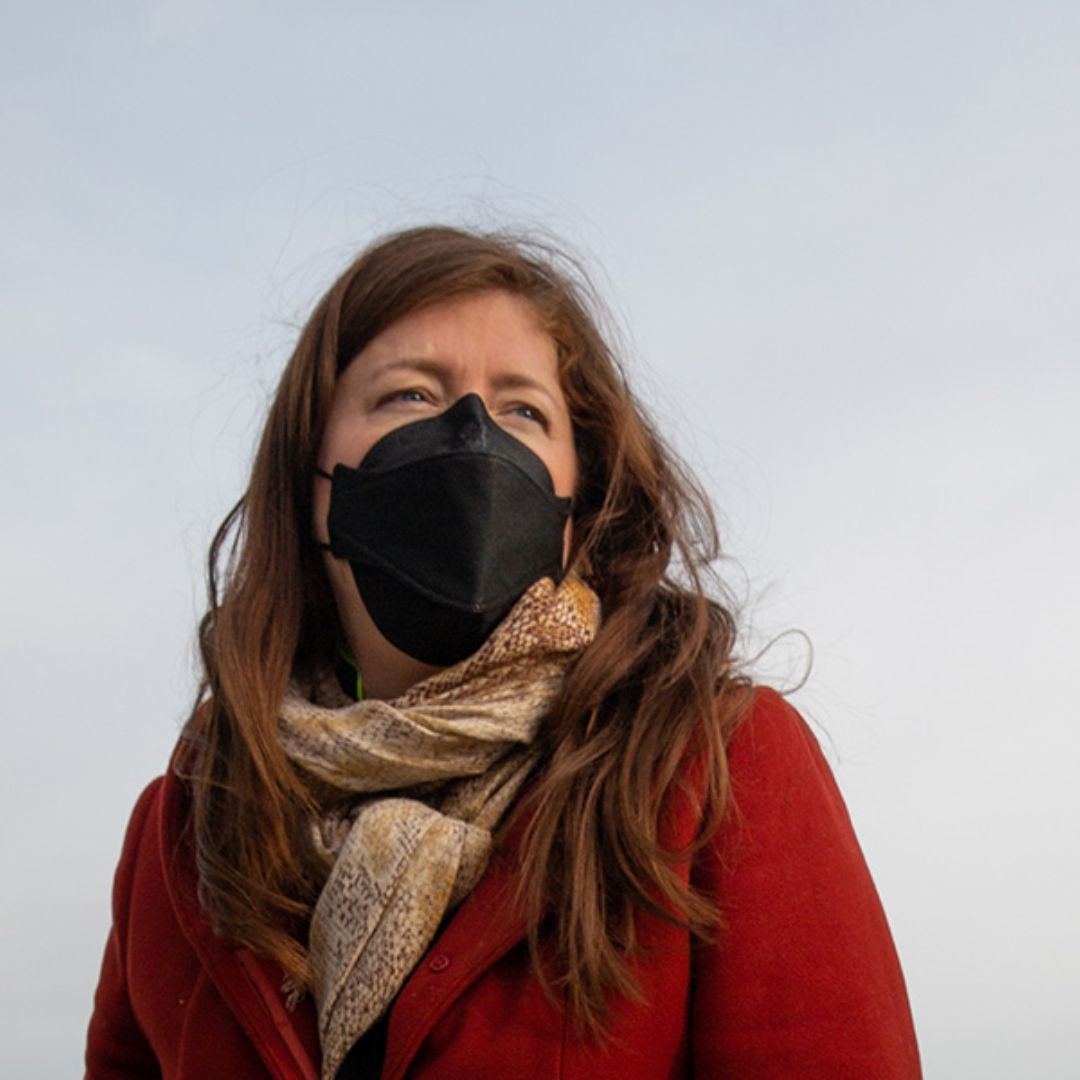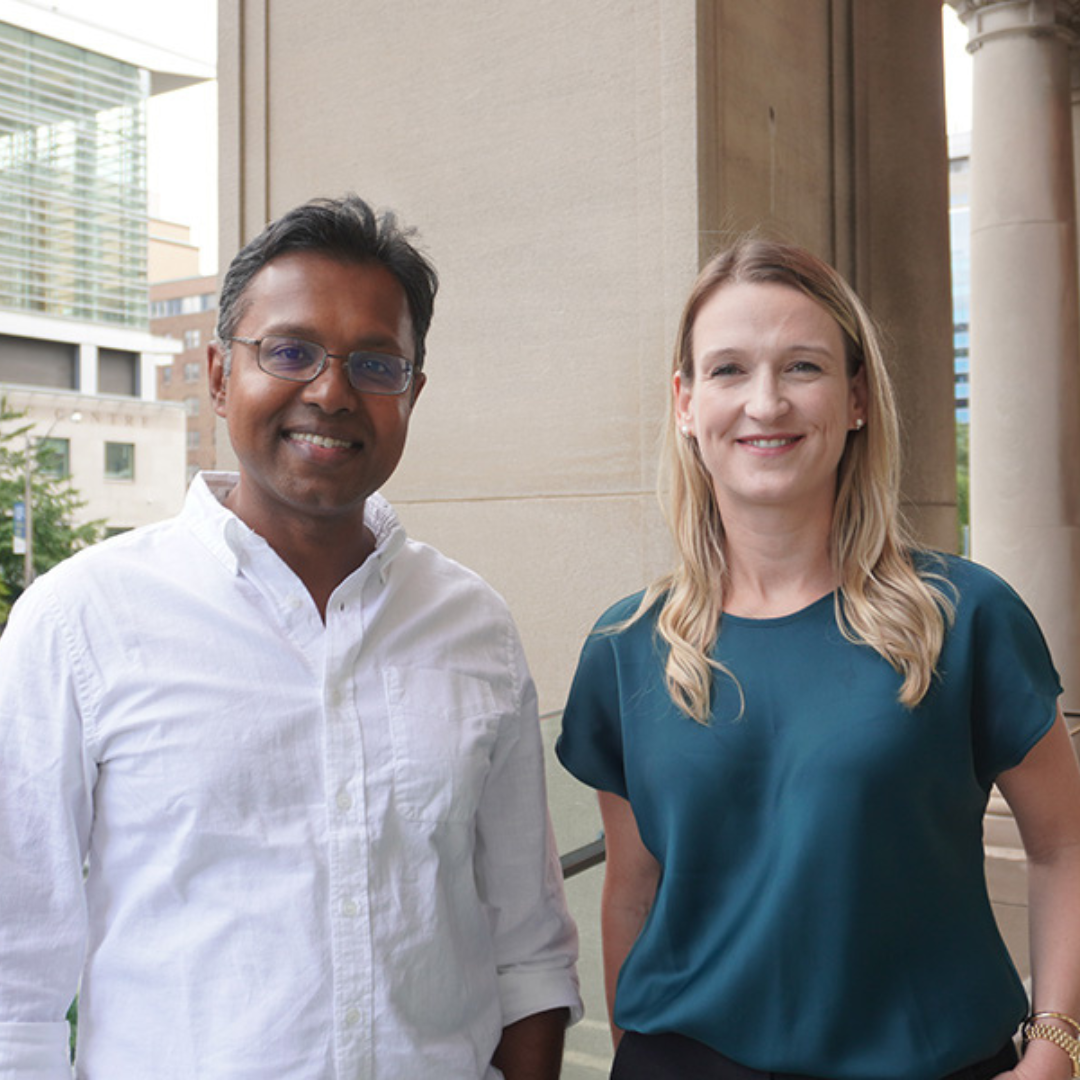Amoy Jacques, a registered kinesiologist at Altum Health, spent three weeks volunteering at one of The Rekai Centres long-term care facilities in downtown Toronto. (Photo courtesy Amoy Jacques)
It’s an experience that has left Amoy Jacques humbled and proud.
A registered kinesiologist at UHN’s Altum Health for the past 13 years, Amoy found her traditional work on hold due to COVID-19. Like many others across the organization, she volunteered for redeployment to a long-term care facility, spending three weeks at The Rekai Centres Sherbourne location.
Amoy’s primary role at the downtown Toronto home was assisting personal support workers and nursing staff in the care of patients, a job that was initially daunting. But through training at UHN prior to redeployment and interaction with long-term care staff and residents, it became an educational and fulfilling chapter in her career as a healthcare worker, and one she encourages others to consider.
“This has been a truly humbling experience,” Amoy writes in an email she recently shared with her Altum Health colleagues and UHN News. “I have never been more proud to be part of TeamUHN!”
In April, across Ontario, hospital staff heeded the call of Premier Doug Ford and healthcare leaders, including UHN President & CEO Dr. Kevin Smith, seeking volunteers to assist in long-term care centres (LTCs) hit hard by COVID-19 outbreaks.
UHN initially partnered with the Rekai Centres, which operates two facilities in downtown Toronto. Soon after, as the dire and urgent needs of Ontario LTCs became clear, mandatory redeployments were put in place to supplement volunteers.
UHN eventually partnered with 20 facilities, including LTCs, retirement homes and other centres across Toronto, including the two Rekai sites. The UHN help took a variety of forms, from testing residents and staff at those facilities for coronavirus, conducting Infection Protection and Control (IPAC) and environmental service assessments and follow-up support, and personal protective equipment coaching. Also, 74 clinical and non-clinical TeamUHN members worked nearly 1,300 shifts at four sites.
“Across the city, TeamUHN members responded to the challenges in long-term care homes with great compassion and expertise,” says Dr. Joy Richards, UHN’s Vice President of Patient Experience and Chief Health Professions. “From that first weekend in April when Kevin asked for volunteers and dozens of people stepped forward, through redeployment, the efforts of UHN staff should make all of us proud.
“They provided exemplary work at a crucial time and saved lives,” adds Dr. Richards, UHN’s Executive Lead for LTC.
Training also focused on reducing residents’ loneliness, psychological stress
Prior to her redeployment at Rekai, Amoy, like all UHN staff, received training in the new role. It focused on the importance of communication, proper feeding and transferring of residents, situational awareness and how to put on and take off personal protective equipment.
Led by UHN Advance Practice Nurse Educators (APNE) Aideen Carroll and Anna Pamaong, the session also examined a crucial skill Amoy and others going to LTCs would need: human connection.
Most residents in long-term care facilities could not leave their rooms, so there was an emphasis on the importance of making a connection with them.
“It was important that we also provided education on reducing loneliness and psychological stress,” says Aideen, APNE at UHN’s Centre for Mental Health. “They were unable to leave their rooms, attend the dining room, see their friends or family. We were filling that gap and relieving loneliness.
“We were there at their time of need, the human voice they heard.”
Amoy’s experience at Rekai, left her with a deep appreciation for the work done by employees in long-term care facilities.
“Staff are simply exceptional in the care they provide to the residents,” Amoy wrote in the note she shared with her Altum colleagues. “I observed their deep commitment to care, ensuring each resident’s needs are met – including connecting them with family, or ensuring they have their favourite meal.
“All of these interactions are truly inspiring.”
Through her redeployment experience, Amoy felt that UHN was a force for positive change in long-term care. She saw that on a daily basis in the expertise around infection control that was implemented and the procedures put in places that made her feel safe and secure and improved outcomes for residents.
“I believe the positive impact we brought to these facilities will inevitably bring sustainable changes for workers and residents alike,” Amoy says.


